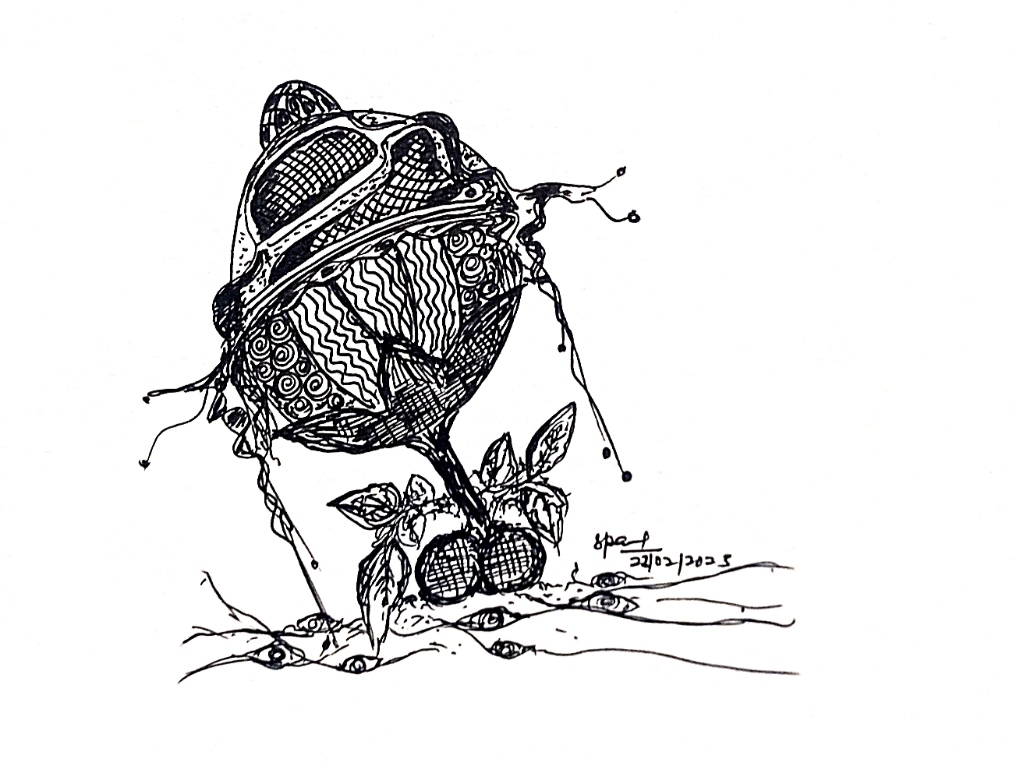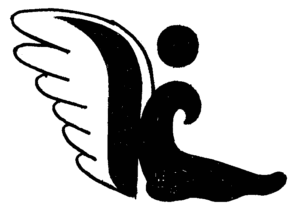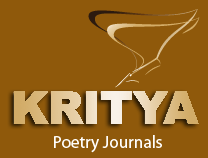
In The Name of Poetry
 Poetry by Argo Spier
Poetry by Argo Spier
( Taken from web journals and revised by Suma. V.S.)
Poetry generally involves two roles, readers and writers. There is a symbiotic relationship between the roles, and with only one, poetry, simply does not happen. The locality, in time-continuum existence, and transcendence of meaning in poetry depend on both these two elements. Both are essential components. Poetry does not know causes and effects; it is something that only comes into being when it is written-AND-read. The reader’s function, in the assembling of poetry, is to unlock the poem, the writer has preordained and free it into the source-pool of the Literature Generalize, the vast body of collective literature. When a poem is not read, it stays as what it was, a germ that infected the brain of the writer. Unread writers (unwritten readers) are of a leprous kind, infected by deadly incubations and therefore dangerous. So, a good poet earns his prestige, not through the number of his medals, prizes and honoraries, but by reading and being read many many times. However, there is still a devil that exists in the detail of the reader/writer relationship that produces egocentricity. A statement such as “‘He’ is a reader’ when made is assumed as the reader is masculine. The he is a he. Is ‘he/she’ in connection with reader not a more suitable description for a reader? Can a ‘she’ not read a poem? The immediate answer to this is no! No, because it is neither a he nor a she that is conceived in the mind of a reader when he reads ‘he’ or ‘he/she’. The meaning he gives to a ‘he’ or a ‘she’ is different. When the writer employs the word she, in the reader’s (writer’s?) perception, the semantic categorization is ‘I or me’ and immediate proof of his or her involvement and role in making the poetry happen. For the reader there is no such thing as ‘he or she’. In his/her mind the value of ‘he’ is always egocentrically categorized. One does not have this in prose. It only occurs in poetry. Even if the ‘he’ was categorically stated and precisely described as being a male Homo Sapiens Generalis, with all the usual male characteristics, beard, genitalia, etc., there is nothing in the brain that connects the ‘she’ with femininity and the ‘he’ with masculinity. It connects ‘he/she’ with the being. The answer is simple: ‘Poems aren’t poems at all, they are always something and someone else!’
The poetry reader always places himself as the protagonist, while the prose reader seldom does. This is a phenomenon that must convey something about the strangeness of poetry. The reader enjoys a personal reaction and therefore creates from the time of reading, an individual instance of the poem’s entity. It is empirical that a poem cannot have no readers, for the writer automatically acts as her own reader.
Ultimately, it is all in the hands of the poet that is unveiled by a poem. Or to put it another way: Is it the poet that’s found in the poem or the poem that makes the poet?
( reprint)

